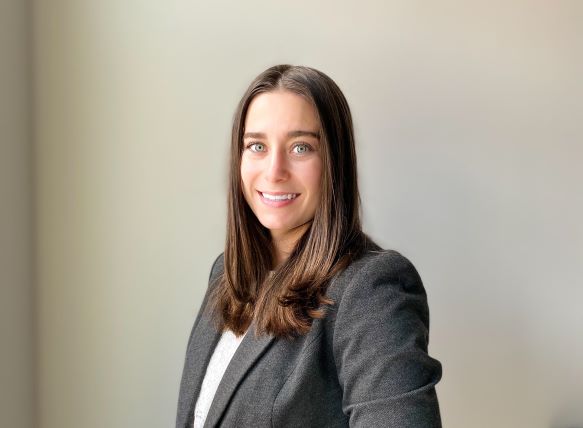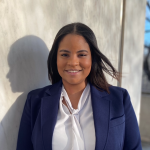Blog Post Legislation Update
Proposed legislation and IP social justice
Device Access for Every American Act
The Device Access for Every American Act was introduced to both houses of Congress on September 14, 2021. The bill, which was introduced by Senator Raphael Warnock of Georgia and Congressman Donald McEachin of Virginia, claims to authorize the Federal Communications Commission (“FCC”) to create programming that allows Americans in need to redeem $400 vouchers so that they may buy laptops, tablets, computers or other devices. This legislation includes a proposal for $5 billion in federal funding for the establishment and implementation of the program. It would permit two low-income individuals per household to receive the vouchers so that families are able to have multiple devices. This effort, the Act additionally claims, would direct the FCC to integrate with device retailers as program participants, promote the program, and assist eligible Americans with enrolling in the program. Read the full text of the bill here.
Unleashing American Innovators Act of 2021
On September 21, 2021, U.S. Senators Thom Tillis and Patrick Leahy introduced The Unleashing American Innovators Act of 2021 as part of a bipartisan effort to amend the Leahy-Smith America Invents Act by addressing satellite offices of the United States Patent and Trademark Office (“USPTO”). The bill aims to expand access to the patent system for those who wish to participate in it by proposing the establishment of a sixth regional office in the Southeastern U.S. and creating “community outreach” offices around the country to provide support to potential patent seekers. If passed, the Act would create a program for first-time patent applicants which would create additional resources for assisting applicants with an application following a denial. The bill also seeks to reduce statutorily required fees for “small and micro entities” through amendments to the language of 35 U.S.C. 41(h) and the Leahy-Smith America Invents Act. Read the full text of the bill here.
Pride in Patent Ownership Act
Accompanying their introduction of the Unleashing American Inventors Act of 2021, U.S. Senators Thom Tillis and Patrick Leahy introduced the Pride in Patent Ownership Act to “ensure that the public has access to the true owner of a patent.” The bill aims to resolve the issue of costly litigation that parties undergo in identifying the beneficial owner of a patent by promoting transparency and creating a mandatory reporting requirement for patent owners. The reporting requirement would apply to the initial issuance of a patent and any subsequent transactions which results in a change in the “true ownership” of the patent. The mandatory reporting requirement, according to the bill’s official press release, would prove beneficial in instances where small businesses hope to identify the true patent owner for purposes of obtaining a license. Read the full text of the bill here.
Blog Post On The IDEA Act
THE INVENTOR DIVERSITY FOR ECONOMIC ADVANCEMENT (IDEA) ACT OF 2021
Senator Mazie K. Hirono (D-Hawaii), Senator Thom Tillis (R-N.C.), Congresswoman Nydia M. Velázquez (D-N.Y.), and Congressman Steve Stivers (R-Ohio) re-introduced the Inventor Diversity for Economic Advancement (“IDEA”) Act in March 2021 to ensure equal access to the U.S innovation system.
Tillis cited several studies that show women and minorities apply and obtain patents at lower rates than male white counterparts. In fact, women make up only 13% of inventors, and Black and Hispanic graduates apply for patents at half the rate of White graduates.
To address these discrepancies, the IDEA Act would direct the USPTO to collect demographic information from patent applicants voluntarily. It also requires the USPTO to make the data publicly available in addition to reports on the data. This will help other researchers analyze the issue and offer solutions to the problem. The proposal now awaits judiciary committee review.
Data collection is the first step to identifying areas of change. You can access the text to the legislation here.
For more on this topic, check out these posts:
IIPSJ’s Comments to USPTO on strategy for National Council for Expanding American Innovation
IIPSJ Comments On the National Strategy for Expanding American Innovation
Diversity in IP enterprise and innovation is critical and long overdue. The need has been highlighted in the USPTO report in response to the SUCCESS Act. IIPSJ Comments on NCEAI (1)
Blog Post On The SUCCESS Act
THE SUCCESS ACT: WHERE WE STAND & THE PATH FORWARD
In this post, Brittany Amadi and Gary M. Fox outline the goals and findings of Congress’ SUCCESS Act and expose the correlation between lack of diverse inventors and lack of diversity within the STEM field.
The SUCCESS Act was intended to address racial and gender disparity in USPTO applications by requiring the government to conduct a study on applications submitted by and patents issued to women, minorities, and veterans. Later on in October 2019, the bleak findings were made public and the USPTO carried on with five recommendations to address the disappointing report, which Amadi and Fox draw out in this post.
But Amadi and Fox also suggest that, while good starting points, the Act and the following recommendations fail to address the root of the problem. They argue that it is only and until we tackle the underrepresentation of women and minorities in the STEM field during the earlier stages of intellectual development that we can mitigate discrepancies of underrepresentation in inventorship.
For more on this topic, check out these posts:
IIPSJ’s Comments to USPTO on strategy for National Council for Expanding American Innovation
Blog Post IP Attorney Interviews
Interviews with Attorneys of Color in IP
In 2020, spring and summer protests of racial injustice and mistreatment by police increased momentum to a movement to support diversity and inclusion in a variety of spaces, including in the legal field. Our work at the Institute has always included efforts to increase the diversity of the intellectual property legal bar. In 2003 the Institute established its annual IP and Social Justice CLE program, in part to provide opportunities for IP attorneys of color to present their expertise before IP experts in in-house corporate and governmental legal departments, elite law firms, and other IP entities. For the past seventeen years, this program has also enabled minority IP attorneys to serve as role models for dozens of law students and to encourage them to pursue careers in IP practice.
We believe the lack of diversity in the IP legal bar must be addressed in a variety of ways. We previously shared the Bloomberg Law article, Black IP Lawyers Who’ve Made It Look to Grow Ranks Beyond 1.7%. Now we build on that conversation starter with interviews with successful IP attorneys of color to hear their honest perspective:
- Esther Lim
- Mariessa Terrell
- Daryl Lim
- Jennifer Hayes
- Lita Rosario-Richardson
- Philip G. Hampton
- Idris N. McKelvey
Esther Lim
This month we feature an interview with Esther Lim.
Watch the full interview here.

Esther H. Lim is Partner & Chief Diversity and Inclusion Officer at Finnegan, Henderson, Farabow, Garrett & Dunner, LLP, and Patent Chair of the IIPSJ IP and Social Justice CLE program. Watch as she provides valuable insight into her personal journey to a career in patent litigation, portfolio management, licensing, and counseling, and the importance of diversity in intellectual property practice.

The interview was conducted by Ariel Batiste, a 2023 graduate of Howard University School of Law, and current associate at Finnegan.
Mariessa Terrell
This month we feature an interview with Mariessa Terrell.
Watch the full interview here.

With evolving definitions on what intellectual property includes and rapidly emerging technology, trademark and fashion attorney Mariessa Terrell discusses the unconventional career pathways taken that launched her to the forefront of a landscape shift in intellectual property law.
From her beginnings as a student at Howard University School of Law, Mariessa found a way to incorporate her love of fashion into her journey. Landing at the United States Patent and Trademark Office(USPTO) in the department responsible for beauty fashion matters was just the beginning. Since then, she has gone on to develop specialized practice areas at her law firm, served as D.C. Fashion Commissioner, and assumed the role of Adjunct Professor & Supervising Attorney of the Howard University School of Law Intellectual Property Law Clinic. She details that staying focused on what she wanted helped navigate her through her unique route to success.
After an extended hiatus, Mariessa made her way back to the USPTO office where she is the Attorney Advisor to the Trademarks Customer Outreach section where she develops the USPTO educational programs for experienced trademark practitioners. She also is Executive Director of the High Tea Society, a mentoring program for girls in Washington, D.C., and a creative writer with several published short stories featuring her alter ego, Simone Butterfly.
Contact Mariessa:
Web: MariessaTerrell.com
Social Media: @MariessaTerrellEsq
Email: M@MariessaTerrell.com

This interview was conducted by Leeandria Williams, a law student at Thurgood Marshall School of Law.
Daryl Lim
This month we feature an interview with Professor Daryl Lim.
Watch the full interview here.

Professor Daryl Lim is a very busy man. He is the H. Laddie Montague Jr. Chair at Penn State Dickinson Law, associate dean for Research and Innovation, and the founding director of Dickinson’s IP and Innovative Initiative. Incredibly, Professor Lim is also a co-hire in Penn State’s Department of Computational and Data Sciences, and an affiliate at Penn State’s Center for Socially Responsible Artificial Intelligence.
Truly IP’s international man of mystery, Professor Lim is an alumnus of the University of Singapore, the University of London (London School of Economics), and Stanford University. In addition to his professorial duties, he serves as a peer reviewer for several leading law journals as he is himself an award-winning author on the intersection of IP, technology, competition policy, and the public good.
During the interview, Professor Lim tackles the hard-hitting questions, including whether the practice of law as we know it will survive the current influx of generative AI chatbot programs, like “ChatGPT.” Thankfully, Professor Lim assures us that future lawyers who possess distinctly human characteristics–such as empathy, creativity, and a passion for social justice–will always be able to add value.

This interview was conducted by Liana Alston, a third-year law student at Howard University School of Law.
Jennifer Hayes
This month we feature an interview with Jennifer Hayes.
Watch the full interview here.

In this interview Jennifer Hayes, head of Jordan IP Law’s Pharmaceutical, Biotechnological, Life Sciences, and Chemical and Materials Practice groups gives her perspective on diversity in the legal profession and the importance of mentorship. Early in her career, Jennifer followed in her father’s footsteps and became a registered pharmacist in the state of Maryland. Later, her mother encouraged her to seek out a career in patent law.

This interview was conducted by Erin Williamson, a third year law student at The George Washington University Law School. in the interview, Jennifer stresses the importance of “not taking no for an answer” and diligently pursuing opportunities to grow in one’s practice. In the interview, Jennifer talks about her experiences building Jordan IP’s chemical practice from the ground up and the challenge of bringing in new clients. Throughout the interview is one consistent theme: understand your strengths and never stop seeking opportunities to improve yourself.
Lita Rosario-Richardson
This month we feature an interview with Lita Rosario-Richardson.
Watch the full interview here.

Lita Rosario-Richardson runs WYZ Girl Entertainment Consulting, where she provides legal advice and advocacy for creators relating to intellectual property and entertainment issues. Early in her career, Mrs. Rosario-Richardson founded and was the VP of Business and Legal Affairs for University Music Group which produced multi-platinum artists Dru Hill, Sisqo, and MYA. She has represented numerous artists, including George Clinton, Missy Elliot, members of Parliament Funkadelic, Afrika Bambaataa, and Soul Sonic Force to name just a few. She is also an adjunct professor at the University of the District of Columbia’s Department of Mass Media, Visual, and Performing Arts and American University’s Kogod School of Business.
Philip G. Hampton
This month we feature an interview with Philip G. Hampton.
Watch the full interview here.

The interview was conducted by Elizabeth Rice, a third year law student at Howard University School of Law. In this interview, Chief Diversity & Inclusion Officer, Senior Partner and former Commissioner for Trademarks Phillip Hampton provides his perspective on diversity, the importance of mentorship, and success within the legal profession. Outside of his aforementioned experience, he is also an adjunct professor at Howard University School of Law and was recently awarded the 2021 Mark T. Banner Award, among many other recognitions and accomplishments.

Throughout the interview Hampton emphasizes the need to increase the presence of women and minorities in the legal profession, especially in the areas of patent and copyright law. He makes mentions of his own efforts in his former position as Commissioner for Trademarks to do just that. He attributes his personal success to his persistence and sometimes, admittedly, his stubbornness. In the interview, Hampton talks about his experiences early on in his career and how those challenges encouraged him to persist and work harder. While a broad range of topics and anecdotes are covered, a consistent theme is Hampton’s dedication and commitment to helping others achieve success in the legal profession.
Idris N. McKelvey
In December 2020, we featured an interview of Idris N. McKelvey.
Idris McKelvey leads the Estée Lauder Companies’ Patent Group, where he is responsible for designing and executing the company’s global patent strategy, supporting more than 30 luxury cosmetics brands. Idris was promoted to Vice President, and Lead Patent Counsel, in July of 2018.
Prior to Estée Lauder, Idris served as patent counsel for Procter and Gamble, managing global patent portfolios for brands including Pantene®, Head and Shoulders®, Herbal Essences®, Cascade®, and Dawn®.
Idris earned his J.D. from Howard University School of Law in 2005, and his B.S. in chemistry from Howard University in 2002 (cum laude). Away from work, Idris volunteers with the Long Island chapter of Girls Inc. and Jack and Jill of America. Idris resides in Huntington, NY with his wife, Monique, and two daughters, Nadia and Zara.
The interview was conducted by LaTessa Gray*, a third year law student at Howard University School of Law. In the interview, Mr. McKelvey discusses his career as a patent attorney, provides advice for future IP attorneys, and discusses the diversity, or lack of diversity, of the IP bar.
Here’s a description of the interview in Tessa’s own words.
Vice President, Lead Patent Counsel of Estee Lauder, and full-time “girl dad” Idris McKelvey is nothing short of inspiring. In this interview, McKelvey gives his perspectives on the lack of diversity in the legal profession, how to distinguish yourself amongst legal talent, and the importance of accepting and seeking honest critique in career development. He also negotiates a frozen yogurt date with one of his daughters.
McKelvey details an insightful approach to his philosophy of success which includes falling into opportunities, self-accountability and awareness, and fostering intellectual curiosity. But this is not all talk. His commitment to the skills he believes were useful in his journey is evidenced by his own hobbies and interests: listening to a variety of music, travelling the world with his wife and daughters [which has been on a halt with the virus], and reading books that push him to think and approach the world differently. Many years removed from his days as a chemistry major at Howard University, McKelvey still makes an effort to learn from the world around him and to use those teachings as a tool to differentiate himself within the legal field.
Blog Post On Diversity and Innovation
Blog Post on the Importance of Diversity and Innovation
by Tashia Bunch, IIPSJ Administrative Director
The 2018 SUCCESS Act required the US Patent and Trademark Office (USPTO) to work with the Small Business Administration (SBA) to determine the number of patents owned by women, minorities, and veterans and to provide recommendations to increase that number. A report was provided in 2019 that included steps the USPTO plans to take as well as legislative recommendations. One such step by the USPTO was the launch of the National Council for Expanding American Innovation (NCEAI) initiative last month. The initiative includes representatives from private companies, academia, and government to help the agency develop a comprehensive national strategy to build a more diverse and inclusive innovation ecosystem.
As we explore ways to build this ecosystem, we must acknowledge why this is important to the country as a whole and specifically in minority communities, identify current barriers to equal access and opportunities, and provide solutions for breaking down those barriers.
We know that increasing innovation is valuable to society as a whole. This idea appears in the U.S. Constitution when it grants Congress the power to issue patents and copyrights in order to promote the progress of science and useful arts. Today, the United States promotes itself as a global leader and continuing contributions in science, technology, engineering, arts, and math (STEAM) fields are necessary to remain in that position. Moreover, creativity and innovation often lead to new business ventures and avenues for income contributing to the national economy and job creation.
Increasing IP creation and ownership in minority communities will contribute to these societal goals. It is also important to address economic justice principles of equitable access to financial opportunities. Creativity and innovation can lead to financial freedom through IP ownership and entrepreneurship. Access to education in STEAM fields beginning as early as elementary school as well as resources and community programs providing access information and assistance in protection and monetization can help expand IP creation and ownership in minority communities. As such, we strongly advocate for policies and programs providing education and access to the tools and information necessary to innovate and to monetize their innovations.
IIPSJ encourages a continuing dialogue on this important topic both on the impact and value of diversity in innovation and creativity and on ways to increase diversity in STEAM fields. Earlier this year at our annual CLE program, we featured a panel presentation titled “Remembering Invention of a Slave: Patents and the Continuing Struggle for Civil Rights”, which discussed inventorship and the struggle to acquire patents in the African American community from slavery to the present. You can view this discussion on our YouTube channel.
We have also shared a variety of materials discussing the topic in our monthly newsletter. Materials such as the NPR podcast and post detailing how conditions during the periods of post-Reconstruction and Jim Crow obliterated the legal incentives for black inventors to apply for patents and otherwise undertake innovative endeavors. Along with the story of Percy Julian, a chemist who managed to innovate and acquire over 130 patents during Jim Crow. Additional links below.
IIPSJ will continue to engage in continuing conversations on this topic, advocating for policy changes to serve minority communities and looking for other ways to help further the conversation and make change.
Links:
– USPTO launched the Expanding Innovation Hub, an online platform available on the USPTO website that provides resources for inventors and practitioners to encourage greater participation in the patent system
– Invention of a Slave and the Ongoing Movement For Equal Justice, by Dennis Crouch
– Motion Picture Association panel “Understanding Copyright’s Role in Diverse Storytelling”
– Copyright Alliance – Educational content addressing race and racism



